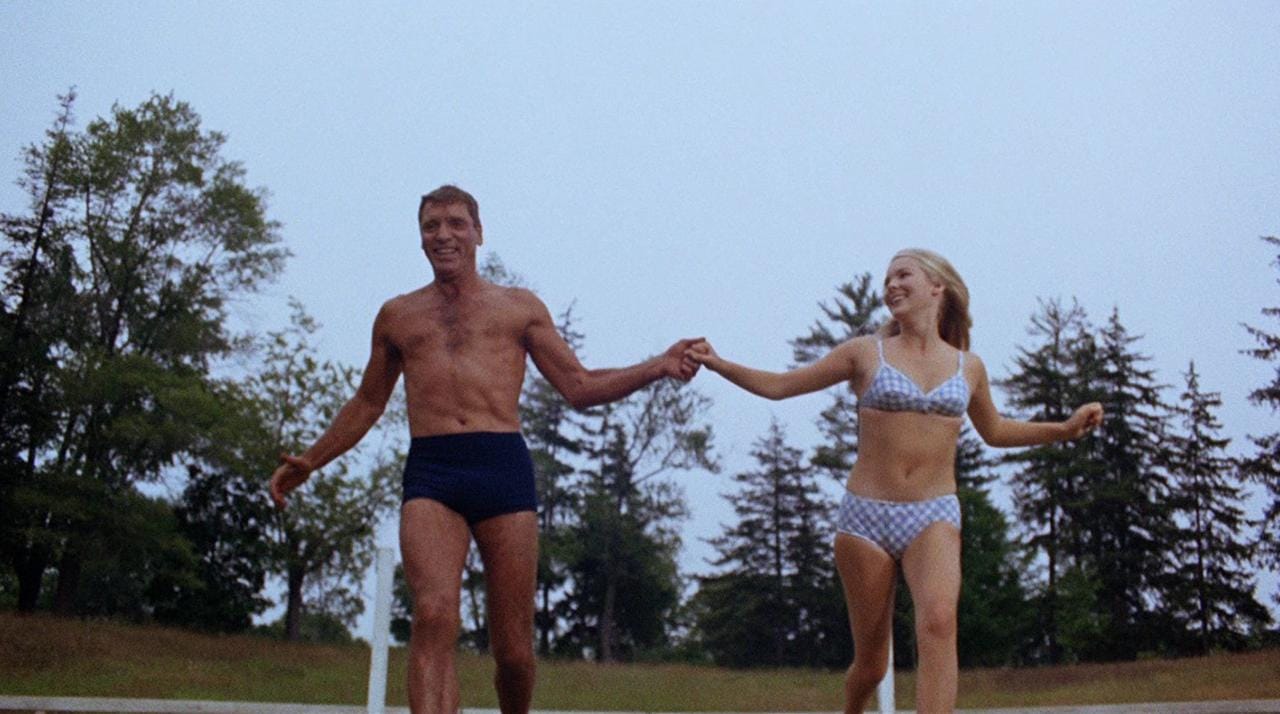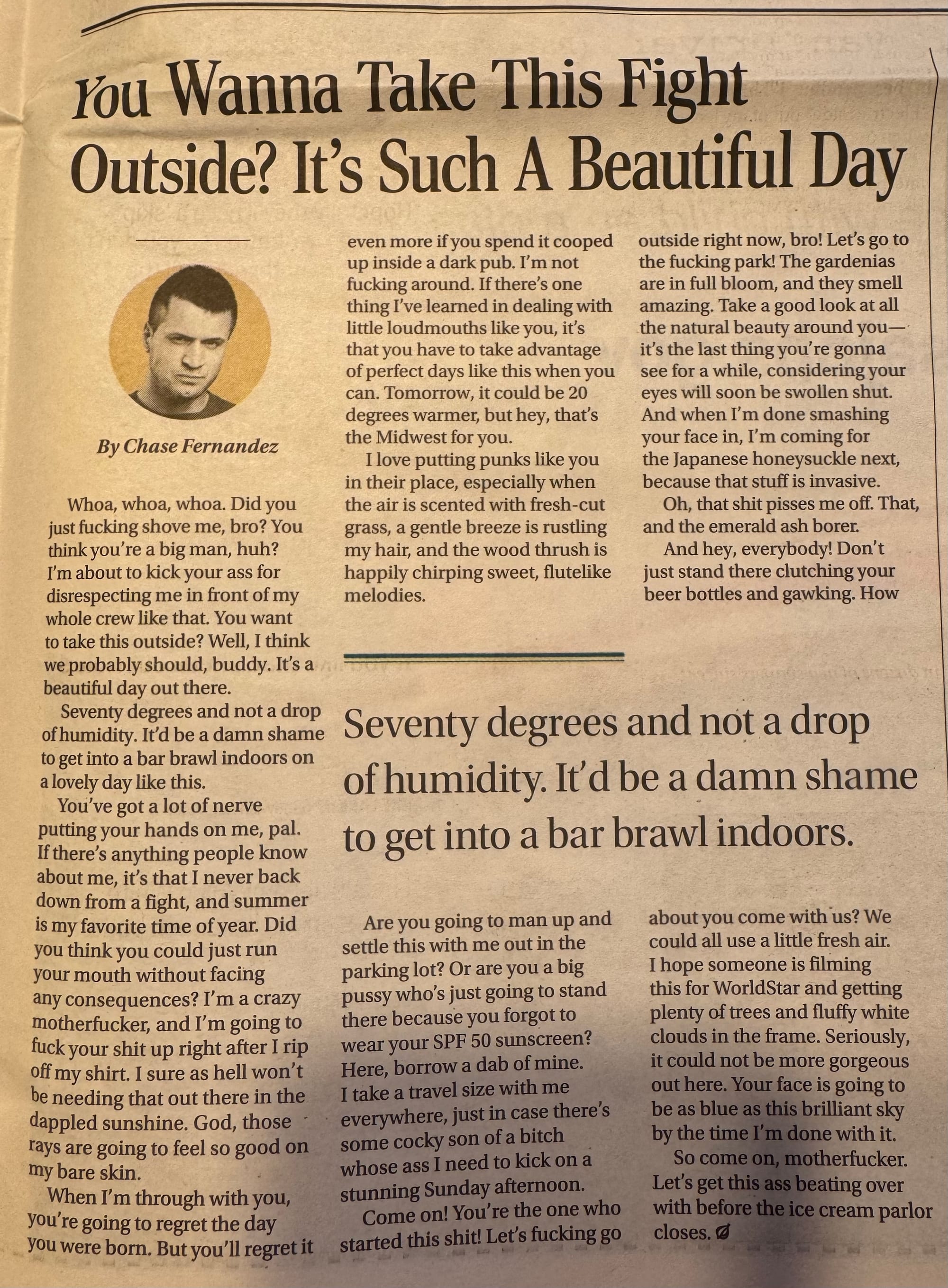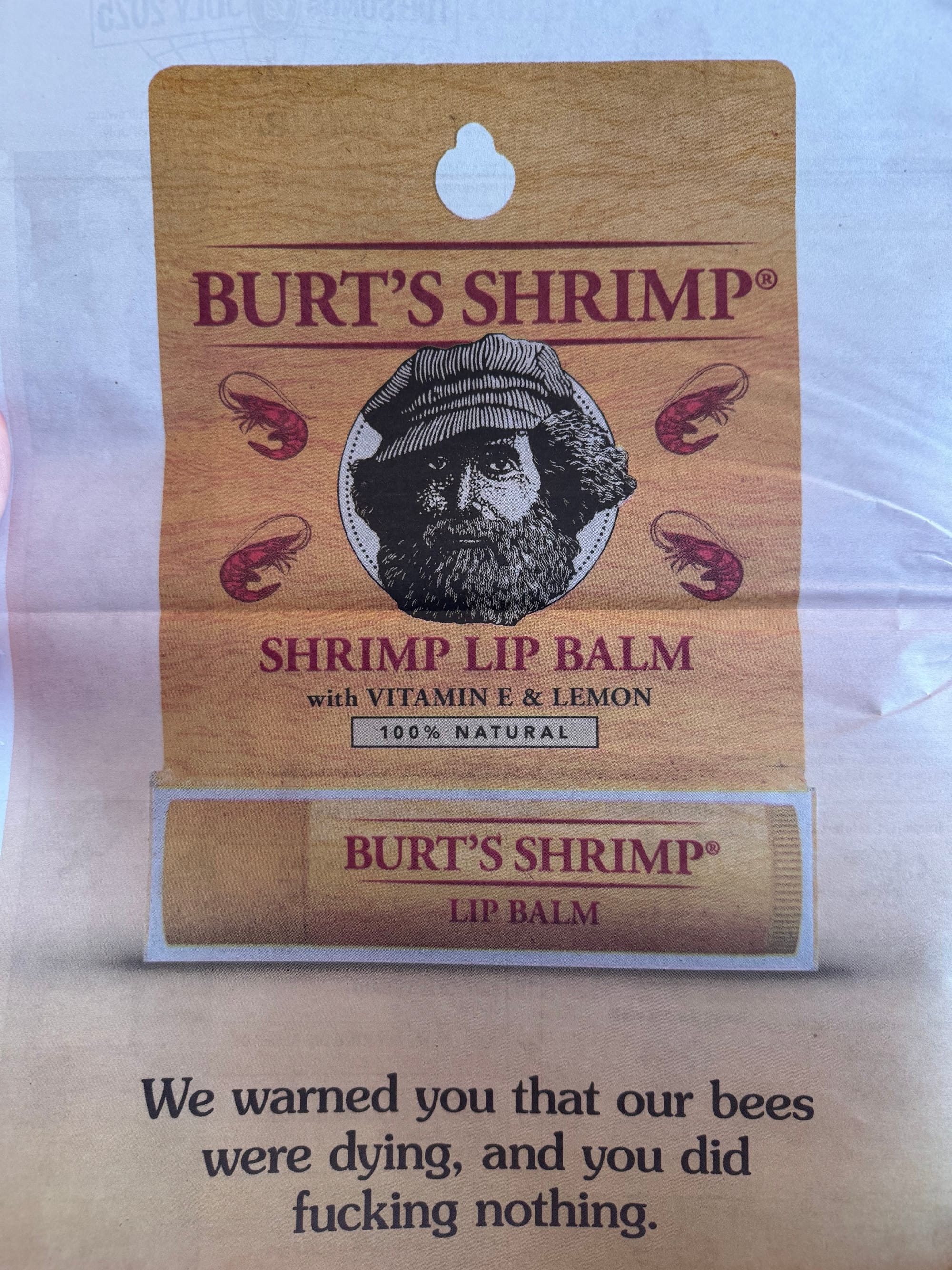#65: Summer is trying to kill me
It's a miracle I even survived this past week. My high school best friend came to visit NYC for the first time since we were teenagers (shoutout to the extremely toxic 2004 drama club field trip!!!!!), chaotically arriving on a Monday and leaving on a Friday. And during those 5 days, New York suffered the worst and longest heat wave of the summer thus far, so I spent endless days and nights of 100+ degree heat trudging around to some of my favorite city hotspots, where we would reminisce about 20 years of friendship, or I'd play wingman to him. (After a week of observing the courtship rituals of straight people, I have to ask: are you guys okay??? It's a mess out there!) Once that was over, I fled upstate for the weekend, retreating into the gorgeous, comforting bosom of the gays, healing my heterosexual-adjacent trauma via the magical homosexual powers of antiquing. It was a long, long week, one that I feel lucky to have made it through. Whoever invented the concept of summer was a deranged and dangerous maniac. It's too much!
Which is all to say: this week you're getting a real grab bag of bullshit, as most of what I consumed was food and drink and gossip. I did, however, manage to watch a very strange 60s film, I went and saw the new big gay off-Broadway show, I enjoyed some real and fake news stories, and I loved the new Karen Russell novel.
The Swimmer (1968) — on Criterion
I've always loved the short story this movie is based on (here it is in PDF form for free, read it!) — the structure is brilliant, the characters are fun, the reveal is earned, and I think of the first sentence literally every time I'm complaining about being hungover with friends: "It was one of those midsummer Sundays when everyone sits around saying, 'I drank too much last night.'" Truly one of the perfect first sentences, which is why I felt the need to watch the film on a midsummer Sunday after a week of drinking too much. What I wasn't prepared for was how insane the adaptation is.
The plot is simple: Burt Lancaster — squeezed into a tiny little bathing suit for 90 whole minutes — is drinking and swimming at a neighbor's house, when he decides to "swim the county", by swimming in every single pool on the way back home. It's the dumbest little odyssey, which makes it a tidy little epic, one designed to reveal more about the main character and his mysterious past as the journey continues. It is, really, a perfect little narrative! There's a reason English teachers have gooned over this story for 60+ years.
But the movie adaptation, because it has to be much longer than the short story, expands and extends the story with some very wild, very campy, very ridiculous sequences. My favorite is the scene (at least 5 minutes long, though it felt more like 10) in which Burt Lancaster frolics and leaps around a field, all of it in very, very slow motion. It's a completely absurd moment but it's also kind of perfect, leaving you wondering if we're seeing a man who's finally experiencing the happiness of true freedom, or if we're simply watching a man's mind unravel. Like the rest of the film, it's bonkers, but it's bonkers for a reason.
The whole film is peak 1960s. Everyone is vaguely sexually liberated, which mostly means all the housewives want to fuck Burt Lancaster (or maybe they already have?). And in the most shocking mini-storyline of all, he tries his hardest to seduce his kids' babysitter, by reminiscing about how he knew her as a child. I genuinely don't know if this was meant to be shocking, or if this is just how men acted in the 60s. It's probably both!

This is a wild, wild movie, and not necessarily a great one, but possibly a good one, depending on how much discordant absurdity you can handle. But the simplicity of the story structure is truly refreshing in our era of overstuffed storylines, and I have to respect a film this short that takes this many wild swings with its style. It's dreamy and strange, and feels a bit like a movie made by an NYU student who only watches midcentury European films, and I mean that as a compliment.
Josh Sharp's "Ta-da!" — at the Greenwich House Theater
"Ta-da!" is comedian Josh Sharp's new one-man show, directed by the director of "Oh, Mary!" — which is to say, it's the new big, gay thing. (If you're a gay man in NYC, odds are you've been absolutely assaulted by the Instagram ads for this show for the past 5 months.) It's, essentially, 80 minutes of standup, but with the assistance of a 2,000-slide PowerPoint, which Josh laments frequently he had to memorize for the show, all 2,000 slides.
The show is very funny, and surprisingly poignant — he spends a lot of time talking about his mother's death, as well as his own coming-out, which are linked — so you will laugh and cry, if you're inclined to have feelings (thankfully I'm not). Though, I'm not sure the PowerPoint of it all is very necessary (although as a marketing and PR tool it's very handy). The screen mostly serves to punctuate or contradict whatever he's saying, but typically it's used to make jokes about the fact that he's telling jokes via PowerPoint. Which, while funny, can be a bit one-note over the course of the show. But that's a minor qualm about an extremely funny, very good 80 minutes of stand-up-plus-other-stuff, and it feels like a show that's going to only get better the more he does it. Go see it!
"Mary Had Schizophrenia — Then Suddenly She Didn't" by Rachel Aviv — in The New Yorker
This article is equally fascinating, inspiring, and terrifying. It explores the very new theory, which seems to be correct, that a vast amount of people with schizophrenia got it via an autoimmune disorder — and after immunotherapy, someone who has suffered from schizophrenia for decades can be essentially cured overnight. This is insane:
Bartley estimates that between one and five per cent of people who have been diagnosed with schizophrenia actually have an autoimmune condition—a figure he based on his own lab’s research, which has not yet been published, and also on a German study of a thousand patients, the most extensive study of autoimmune psychosis so far. “Even one per cent ends up being almost a million people in the world who should be treated with a different kind of medicine,” he said.
The core issue, as always, seems to be the fact that medical specialties don't like to work together — so a neurologist and a psychiatrist, even though they're both treating the brain, rarely work together to see if there's some overlap between symptoms and system. Seems like a bad way to go about things, but I guess I'm not an MD! This is a problem that's obvious to anyone who's been misdiagnosed by a specialist, but I guess I always assumed that at least on the research level they were working together? Guess not, though! I'm sure RFK will make sure to sort this one out any day now.
The personal stories in this article are wild — it's, really, some of the first times you're able to hear from schizophrenic people speaking lucidly about their own delusions. And it's all extremely complicated, because even though they're "cured," they seem to struggle with understanding that their delusions were delusions. Instead, their minds seem to find neat ways to bridge the gap, like: oh, well, they were putting microphones in my daughter's hair to listen to me, but then they stopped. Which is kind of beautiful, the way our minds are always seeking to protect us from trauma. The human brain is wild and terrifying, and I, for one, can't wait until AI replaces all thought completely. It seems much simpler that way!
The Onion, print edition – delivered monthly
One of the simple little joys I treated myself to was paper (remember paper?) delivery of The Onion, which arrives in my mailbox monthly. I went to college in the early 2000s in Madison, Wisconsin, when The Onion was still based there, which meant every month I could pluck a copy of the fake paper off any newsstand, as if it were a real source of journalism. It was always a highlight of the month, and when I heard The Onion's staff had purchased their company back from the corporate vultures stripping it for parts, and were now offering monthly delivery of a real, physical paper, I eagerly handed over my money.
Anyone who loved The Onion back in the day knows the main draw is the headlines (last month's highlight: "Democratic Leaders Stand Real Still In Hopes No One Notices Them"), but the real humor in the paper comes from all the little jokes crammed in the margins, like a 30 Rock episode on newsprint. They've got fake marriage announcements, fake weather reports, fake obituaries:

There are fake opinion pages, which are just as dumb as they ever were:

And, often the funniest part of the paper, fake ads for real companies:

The world is bleak but, honestly, it feels a little less bleak when The Onion's making fun of it all once a month! We've never needed them more.
The Antidote, by Karen Russell (2025) — hardcover
Karen Russell is one of my all-time favorites, and I think one of the best living writers, so I was surprised to randomly discover she had a new book at a bookstore instead of, say, from people screaming it in the streets like Paul Revere. This country really lets me down sometimes!
Her new book (only her second novel, after Swamplandia!), is set in Dust Bowl-era Nebraska, with a classic Karen Russell strange collection of characters: there's a "prairie witch" who can hold your memories for you, a little girl obsessed with basketball who kind of wants to be a witch, a government photographer with a time-traveling camera, a scarecrow that may or may not have a person's mind trapped in it... honestly, when I read the jacket copy I saw all that and thought this all sounded too exhaustingly whimsical for me. But Karen Russell is a mother to me, so I trusted her.
And I'm glad I did! It's a big, beautiful, fast-paced story about — say it with me — the tales we tell ourselves in order to live. Specifically, it's about how Americans struggle with telling or even remembering our own history, and the ways we've trampled over people (most egregiously Native Americans) in order to make a new history. Somehow, she makes what could feel like a ~~kooky~~ cast of characters all work together, and the book is a beautiful, sweet, charmingly clear-eyed look at our own history.
Unfortunately, riiiiight at the end of the book, one of the main characters decides to give an impassioned speech in which he essentially lays out the core message of the book — as if it hadn't been abundantly clear already. It's not a subtle book! We get it, Karen! But that moment passes quickly, and the ending is more reassuringly subtle and open to interpretation, so I won't hold that scene against the entire novel. And now I'll go back to waiting another 10 years for the next Karen Russell book — this time, I'm counting on someone to tell me when it's out, okay?